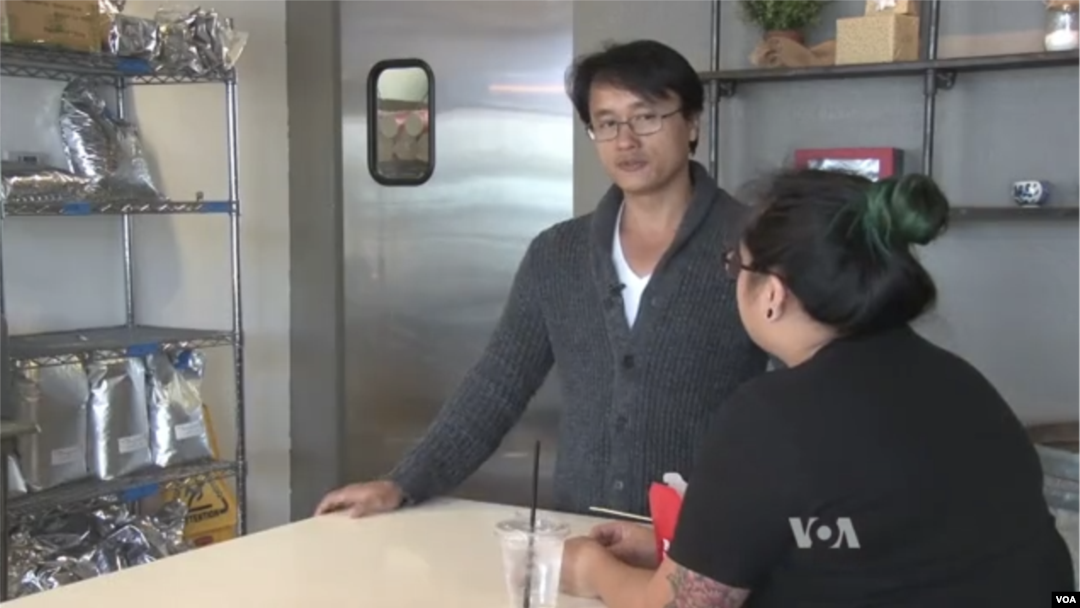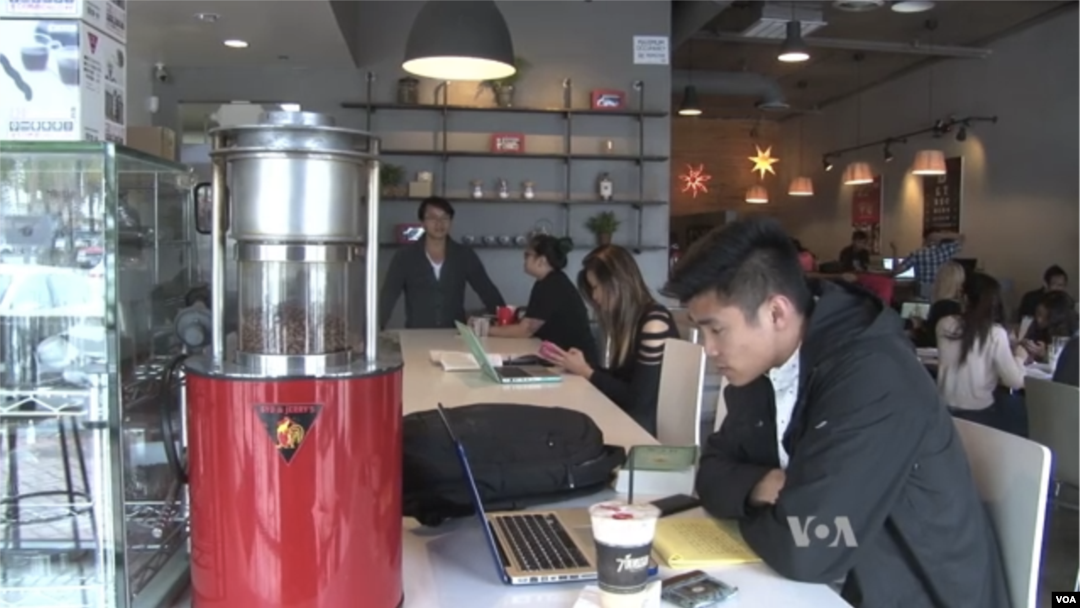U.S. President Barack Obama's visit to Vietnam comes at a time when the Southeast Asian nation is seeking stronger ties with the United States, in part because of growing tensions with China.
Many Vietnamese-Americans, especially the younger generation, are optimistic Obama’s trip will help further reconciliation between the two former foes. The optimism marks a generational shift in views on relations between the U.S. and Vietnam.
The shift is evident throughout the Little Saigon community, located south of Los Angeles in southern California. It is where the largest population of Vietnamese lives outside of Vietnam.
Sonny Nguyen, co-owner of the 7 Leaves Cafe in the heart of Little Saigon, explains the generational divide.

Sonny Nguyen, co-owner of the 7 Leaves Cafe in the heart of Little Saigon, in Los Angeles, California.
“We lost everything, so for my parents’ generation, it’s much more vivid and [for] those that live here in Little Saigon, it’s a scar,” said Nguyen, who was born in Vietnam and brought up in the United States.
Because of that scar, Nguyen said many older Vietnamese-Americans who fled their homeland after the communists took over South Vietnam in 1975 are doubtful that a U.S. presidential visit to Vietnam will bring much change.
Frown at closer ties
Some of the older generation may even frown at closer ties. The younger generation, with different experiences, shares a different perspective.
“I think it’s important for any president to go ahead and foster better relationships with different countries,” said 22-year-old Vietnamese-American Christopher Truong.
Priscilla Hoang, 26, said improved dialogue will help in the healing process.

Customers at the 7 Leaves Cafe in the heart of Little Saigon, in Los Angeles, California.
“It’s a different generation. It’s a different time now," Truong said. "Back then, a lot of things were different than they are these days. I think that fostering a relationship with a communist country doesn’t necessarily mean it’s a bad thing."
Tied to ancestral homeland
Many younger Vietnamese-Americans may not have been born in Vietnam, but feel tied to their ancestral homeland for reasons that are different from their parents' generation, said Dzung Do, managing editor of Nguoi Viet, the largest Vietnamese-language newspaper outside of Vietnam.
“With the Internet, now with more opportunity, a lot of young Vietnamese people, they went back to Vietnam for charity work. They take Vietnamese classes,” Do said.
California native Alvin Bui took Vietnamese classes in college and traveled to Vietnam to use his language skills and explore his roots.
Dzung Do, managing editor of Nguoi Viet, the largest Vietnamese-language newspaper outside of Vietnam, said many younger Vietnamese-Americans may not have been born in Vietnam, but feel tied to their ancestral homeland.
“How can you connect to other Vietnamese youth in creating a better future for Vietnam? So figuring out what they’re thinking in their own language, trying to get into their own heads.”
'Make a change in the world'
Nguyen also dreams of a better future for Vietnam.
“I’m Vietnamese, and I do have a deep care and I know Vietnam is still a third-world country, " he said. "I want to be able to make a change in the world, and if there are groups that I want to help, it is the Vietnamese people, but I think the only way to do that is through reconciliation.”
Nguyen sees President Obama’s trip as an opportunity to improve the lives of the Vietnamese people. Obama’s visit comes at a time when Vietnam seems to be strengthening relations with the West, in part, because of growing tensions with China.
Vietnam is also a member of the 12-nation Trans-Pacific Partnership, a trade pact that includes the United States.
Obama's trip will be the third by a U.S. leader, following visits by President Bill Clinton in 2000 and George W. Bush in 2006.

